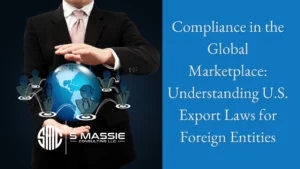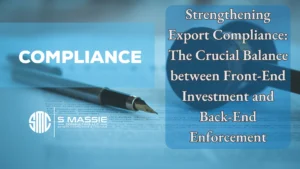In today’s globalized economy, businesses face numerous challenges when it comes to international trade, including the imposition of tariffs, quotas, and taxes. These barriers can significantly impact exporters of all sizes. Diversification is a crucial strategy for businesses to navigate through uncertain times and mitigate the risks associated with tariffs. This article explores the importance of diversification during periods of tariffs and provides insights on how businesses can effectively diversify their operations.

Understanding Tariffs and Their Impact
Tariffs, quotas, and taxes are measures imposed by governments to regulate trade and protect domestic industries. They can vary in nature, such as fixed tariffs or percentage-based tariffs, and are designed to either increase the competitiveness of domestic goods or influence international policies. By levying tariffs or quotas on imported goods, governments can make domestic products more attractive to local buyers.
Recently, the use of tariffs and quotas has gained significant attention. Trade tensions between countries, such as the US-China trade war, have led to the imposition of tariffs and other trade barriers. Additionally, political factors have influenced tariff implementation, as seen in the case of China imposing extreme tariffs on goods from Australia as a response to political disagreements.
The Significance of Diversification
Diversification plays a vital role in mitigating the adverse effects of tariffs on businesses. It involves reducing dependence on specific markets, suppliers, or products, thereby minimizing vulnerability to market fluctuations and disruptions caused by tariffs. Both large and small businesses can benefit from diversification, but smaller vendors within affected industries often face greater challenges due to limited resources and market reach.
How Diversification Helps Businesses
Mitigating Decreased Sales: Diversification allows businesses to tap into various domestic and international markets, reducing reliance on a single market heavily affected by tariffs. This helps mitigate the impact of decreased sales in one market and provides alternative revenue streams.
Expanding Market Reach: By diversifying, businesses can explore new markets and customer segments that are less affected by tariffs. This enables companies to establish a presence in multiple regions and reduces dependence on a single export destination.
Reducing Cash Flow Concerns: Diversifying sales across different markets helps businesses manage cash flow more effectively. If one market experiences a decline, revenue from other markets can offset the loss, providing stability and financial flexibility.
Adapting to Changing Circumstances: Diversification prepares businesses for unexpected situations, such as trade wars or political disputes. Having a diversified customer base and market presence allows companies to adjust their strategies and minimize the impact of tariffs on their operations.
Strategies for Diversification
International Market Expansion: Businesses can identify and enter new international markets with lower tariff rates or more favorable trade agreements. Conducting thorough market research and analysis helps identify potential opportunities and understand consumer preferences.
Product Diversification: Expanding product offerings or developing new products can help businesses minimize the impact of tariffs on specific products. By identifying complementary products or addressing different market segments, companies can maintain revenue streams despite tariff-related challenges.
Building Strategic Alliances: Forming alliances or partnerships with other businesses can provide access to shared resources, market knowledge, and customer networks. Collaboration allows companies to pool their strengths and navigate tariffs more effectively.
Investing in Research and Development: R&D investments enable businesses to innovate and develop new products that are less affected by tariffs. By staying ahead of market trends and consumer demands, companies can maintain a competitive edge.
Conclusion
Diversification is a crucial strategy for businesses to mitigate the risks associated with tariffs and ensure resilience during uncertain times. By expanding market reach, diversifying product offerings, building strategic alliances, and investing in research and development, companies can reduce their dependence on specific markets, suppliers, or products. This enables them to navigate through trade disruptions caused by tariffs and seize new growth opportunities.
In conclusion, businesses must embrace diversification as a proactive measure to adapt to changing market dynamics and navigate the challenges posed by tariffs. By implementing effective diversification strategies, businesses can protect themselves from the adverse effects of tariffs and maintain long-term growth.
Export compliance is a critical aspect of international trade that demands your attention. By understanding and adhering to export regulations, implementing robust compliance programs, and leveraging technology solutions, you can navigate the complex export landscape while maximizing profits.
Furthermore, conducting thorough market research, building strong relationships, optimizing pricing strategies, and capitalizing on free trade agreements will enhance your profitability in export operations. Striking a balance between compliance and profitability will ensure your business thrives in the global marketplace, paving the way for sustainable growth.
S Massie Consulting LLC specializes in helping businesses comply with export regulations. The company provides tailored written export compliance programs that include policies and procedures to ensure that exports are compliant with applicable laws and regulations. Additionally, the company offers employee training programs designed to educate employees on the regulations and laws governing exports, making sure they understand their responsibilities and the consequences of non-compliance.
FAQs
Tariffs are taxes imposed on imported goods, while quotas limit the quantity or value of a particular good that can be imported. Both measures are used by governments to regulate trade and protect domestic industries.
Diversification allows smaller businesses to explore new markets and customer segments, reducing their reliance on a single market heavily impacted by tariffs. It provides alternative revenue streams and helps manage cash flow more effectively.
Diversification prepares businesses for unexpected situations, including trade wars. By diversifying their customer base and market presence, companies can adapt their strategies and minimize the impact of tariffs on their operations.
Businesses can diversify by expanding into new international markets, diversifying their product offerings, forming strategic alliances, and investing in research and development. These strategies help reduce dependence on specific markets, suppliers, or products.
Diversification enables businesses to withstand market fluctuations and disruptions caused by tariffs. By diversifying their operations, companies can tap into multiple revenue streams and adapt to changing circumstances, ensuring long-term sustainability.


